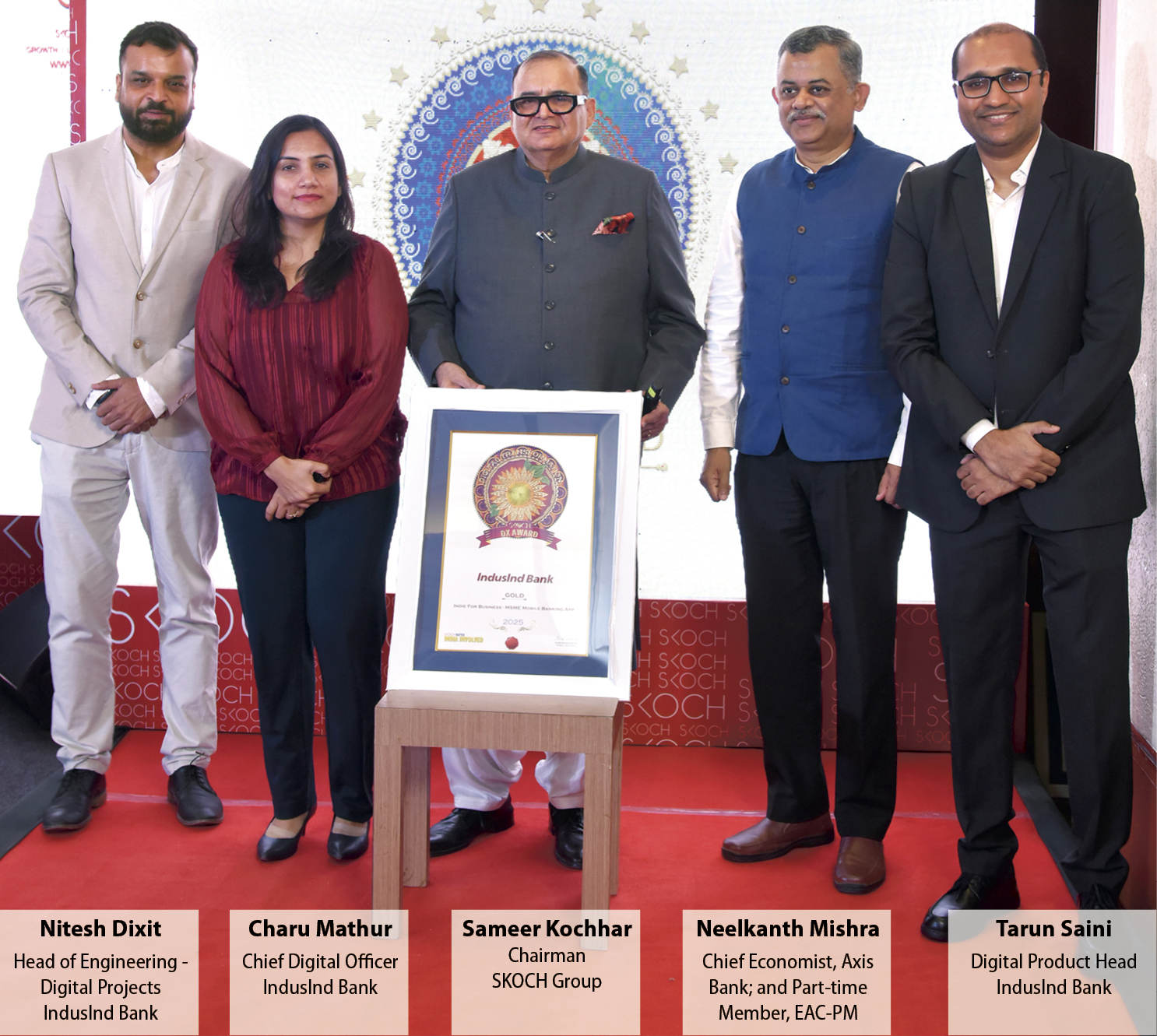This wasn’t just another “digital transformation” project; it was a declaration of intent. For too long, small and medium businesses had been the unsung backbone of India’s GDP — contributing over 30% to national income, employing over 110 million people — yet starved for accessible financial tools. Indie for Business changed the plotline.

Once upon a spreadsheet, India’s MSMEs were drowning in paperwork, late payments and queues that snaked through branch corridors like endless fiscal serpents. Then IndusInd Bank pulled a quiet revolution out of its digital sleeve — Indie for Business, a mobile banking app that turned the entrepreneur’s smartphone into a virtual CFO.
This wasn’t just another “digital transformation” project; it was a declaration of intent. For too long, small and medium businesses had been the unsung backbone of India’s GDP — contributing over 30% to national income, employing over 110 million people — yet starved for accessible financial tools. Indie for Business changed the plotline.
Gone were the paper forms and signature stamps. Indie’s onboarding was instant, paperless and built for the restless doer. Using Aadhaar, debit cards or net-banking credentials, a business could open an account in minutes, not weeks. Once inside, the user found a full-fledged control room — dashboards, tax utilities, bulk payment options, merchant tools, even foreign remittance modules.
It was the democratisation of financial control — a 360° view once reserved for CFOs of large corporates, now in the palm of a shop owner in Jaipur or a designer in Coimbatore.
The impact was electric. Within six months, Indie for Business crossed 1.3 lakh downloads, with 90,000 MSMEs onboarded and one in five users new to IndusInd Bank. Engagement soared — 75% monthly active users, 25% transacting monthly and app store ratings hovering around 4.5 stars.
For MSMEs, time saved translated directly into business agility. Bulk payments no longer needed approvals lost in email loops; tax challans arrived ready-to-file; and maker-checker workflows reduced errors and fraud. Liquidity became predictable, planning became smarter and compliance became less of a nightmare.
For IndusInd, the payoff was just as tangible. The bank wasn’t merely onboarding accounts — it was deepening relationships. Transaction volumes climbed, loan applications grew and MSME deposits began showing sustained stickiness. The app created not just customers but partners — financially literate, digitally active and loyal.
It was the bank’s own digital renaissance — a proof that technology, when human-centered, doesn’t just disrupt; it rebuilds trust.
Behind the glossy interface ran a re-engineered tech engine. Legacy systems were untangled, APIs rewritten and security hardened with Positive Pay, SIM Binding and two-factor authentication. An industry first — the Entitlement Engine — allowed business owners to define user rights across their organisations, marrying compliance with autonomy.
And while many banks struggled to unify their apps, IndusInd embraced modularity — adding features like merchant QR ordering, FD-backed overdrafts and soon, AI-driven analytics. It wasn’t transformation by overhaul; it was transformation by evolution.
Indie for Business plans to enable cross-border trade payments, insurance and connected accounting via Tally, Zoho and Marg. The vision: to become the MSME operating system — not just a banking app, but a digital ecosystem of growth.
The target? Over 1 million active MSMEs in the next three years — each one managing money smarter, safer and faster.


Commissioned on 30 April 2024, the project has an annual generation potential of 58.1 million units with a capacity utilisation factor of 26.53 percent.
Solid waste management was among the most pressing issues. Years of unsegregated garbage posed health and environmental risks.
Affordable Housing by Private Developers on Private Land Uttarakhand Awas Evam Vikas Parishady
eASE App: Transforming Urban Governance Uttarakhand Housing and Urban Development Authority
"American roads are good not because America..
State Rankings Highlights -: Odisha scaled to number..
In the run-up to the elections, the most..
Step 1: Call for Project Submission Call for..

Inclusion is the first magazine dedicated to exploring issues at the intersection of development agendas and digital, financial and social inclusion. The magazine makes complex policy analyses accessible for a diverse audience of policymakers, administrators, civil society and academicians. Grassroots-focused, outcome-oriented analysis is the cornerstone of the work done at Inclusion.
